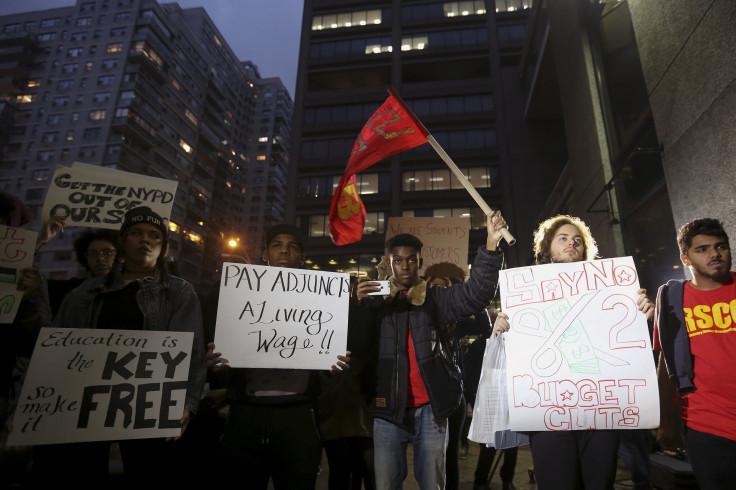Student Loan Debt 2015: Income-Share Agreements Let Investors Buy Stock In Students, Could Be New Way To Pay For College

A different way to finance a college education has begun to gain traction and could provide a fresh alternative to student loans, which plague many recent graduates and the U.S. economy as a whole. Purdue University this week took a step toward exploring income-share agreements, in which investors pay for a student's education in exchange for a percentage of future earnings. The move by the Indiana school adds to the momentum behind the alternative to private student loans.
Purdue plans to partner with Vemo Education, a Virginia financial services firm, to look into the use of income-share agreements, which are commonly called ISAs, to help students pay for their educations, the Washington Post reported Friday.
The move comes at a time when student loan debt has become a national issue. Members of the class of 2015 are estimated to have graduated with an average debt of $35,051 apiece, a $2,000 increase from the year prior, MarketWatch reported. Roughly 70 percent of students graduated with debt this year. Amid rising tuition and other costs, U.S. student loans have quadrupled to $1.2 trillion since 2004 and young people have become less likely to spend money on major purchases like cars and homes under the weight of their debt. In 2014, the unemployment rate for young college graduates was 7.2 percent, which was an improvement, but still far higher than pre-Great Recession figures, U.S. News and World Report said.
ISAs look to ease the burden on people and provide fail-safes that private student loans don't offer. An ISA ties a person's payments, for a fixed period, to income, meaning that during hard times or unemployment, payments are reduced.
"You're always assured to have affordable payments," said Kevin J. James, a research fellow at the Center on Higher Education Reform. "It means that you're always protected by tying your payments to your income."
Private student loans have no such assurances. ISAs could cause a high-performing graduate to pay more, but such agreements also could let struggling graduates work toward recovery. Purdue is relying on Vemo, along with nonprofit organizations 13th Avenue Funding and the Jain Family Institute, to nail down terms of the planned ISA funds students are expected to use for tuition, room and board.
ISAs were first floated as an idea by economist Milton Friedman in the 1950s and have caught on in some Latin American countries, the Post reported. A handful of companies and nonprofits have looked into pilot programs to see how ISAs would work in the United States. A federal loan program already ties payments to earnings but has proved complicated and expensive to taxpayers.
A major hurdle for private ISAs has been legislation to provide consumer protections. Since they are not loans and not backed by the government, it's unclear exactly where they fit in the current regulatory and legal frameworks. Presidential candidate Sen. Marco Rubio, R-Fla., and Rep. Tom Petri, R-Wis., proposed legislation to create a framework for ISAs with a maximum contract length of 30 years and the share of income taken capped at 15 percent. The bill stalled but brought attention to the issue.
A post at the Brookings Institution website suggests ISAs could prove to have a limited market. The option might prove most useful to students whose colleges do not offer federal loans or those enrolled in short-term training, like computer coding "boot camps," Brookings said. Students who expect to earn significant salaries after school might steer away. Some also fear that high-performing students would see more favorable repayment rates as investors try to attract people who would earn high salaries. But ISA supporters counter that to help balance risk and provide stable rates of repayment, it's likely that investors would fund students in groups. Purdue University President Mitch Daniels, former governor of Indiana, seemed entirely on board with the idea, saying ISAs shift risk away from students and toward the investors, even calling ISAs a chance at a "debt-free" college education, in a Washington Post opinion piece.
If ever, now could be the time for ISAs to catch on, with student loans a major political issue and prospective college attendees looking for a new way to pay for school. "In the next few years you're going to see people experimenting to see what kind of ISAs students might be interested in and get a sense of how they perform," James told International Business Times. "I think really the market is going to be focused on being an alternative to private student loans."
© Copyright IBTimes 2024. All rights reserved.












